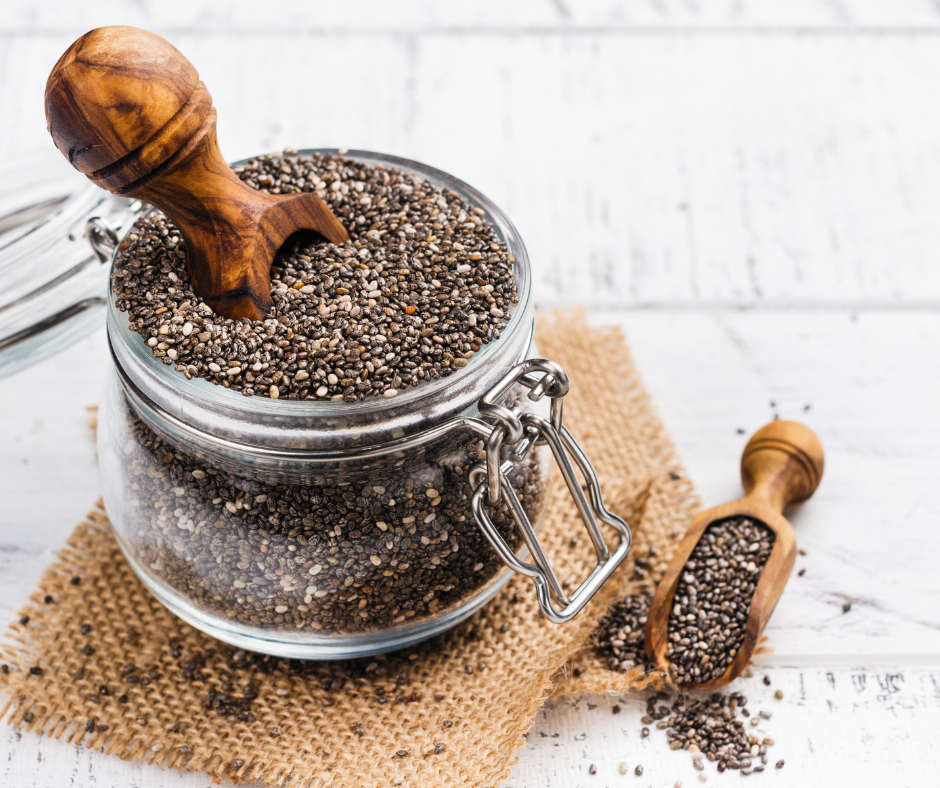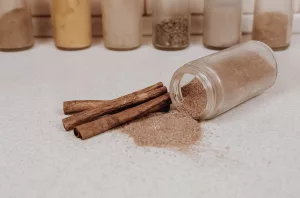Did you know that these little seeds are a powerhouse of nutrition? Meet chia seeds, these tiny seeds could bring some giant impacts to your body. Let’s find out more about the health benefits of chia seeds in this article.
Chia seeds are the edible seeds produced by the flowering plant Salvia hispanica, which is a member of the mint family. They are also referred to as Salba chia or Mexican chia. The seeds have a long history and originate from Mexico and Guatemala. They were an important staple food in ancient Mesoamerican and Aztec societies. The seeds played an important role in people’s diets and health.
These days, chia is cultivated commercially in a wide variety of countries, including Mexico, Guatemala, Peru, Argentina, Australia, and the United States. The seeds have gained popularity as a dietary supplement due to their high nutritional content. Furthermore, chia seeds can be used in a wide variety of dishes.
Even though they’re tiny, they are pack a huge nutritional punch. They are an excellent source of fiber, protein, omega-3 fatty acids, and many other micronutrients. These seeds have been lauded for their health benefits for centuries and were a staple in the diets of the ancient Aztecs and Mayans.
How Amazingly Good Chia Seeds Are
1. Cut Down on Free Radicals
Chia seeds contain antioxidants that can help your body neutralize free radicals. Cell damage and oxidative stress are caused by free radicals. Many diseases and conditions are linked to free radicals, and eating foods high in antioxidants can help lower your risk of developing these diseases.
2. May Help With Weight Loss

Chia seeds contain both fiber and protein, which may help with weight loss.
Nearly 10 grams of fiber can be found in just one ounce (28 grams) of chia seeds. That makes them 30% of your daily fiber requirement. The soluble fiber in the seeds absorbs water and swells in your stomach to help you feel full faster. Chia seeds may help you maintain your weight by helping you feel fuller on fewer calories.
3. Improved Cardiovascular Health
The antioxidant quercetin found in chia seeds has been linked to a lower risk of developing heart disease and other health problems. The high fiber content of the seeds also helps manage high blood pressure, reducing the risk of cardiovascular disease.
4. Reduce Inflammation
Heart disease and cancer are just two of the many diseases that can result from persistent inflammation. Caffeic acid, an antioxidant found in chia seeds, has anti-inflammatory effects. Inflammatory markers are often an indicator of the presence of an inflammatory disease, and regular consumption of chia seeds may help reduce them.
5. Increased Bone Density
Among the bone-healthy nutrients found in chia seeds are magnesium and phosphorus. Calcium is an absolute must for strong bones, muscles and nerves, and the seeds provide 18% of your daily requirement in just one ounce. Chia seeds have more calcium per gram than dairy.
6. Better Blood Sugar Control
Chia seeds are an excellent source of fiber. Studies have shown that increasing your fiber intake can help lower your risk of developing metabolic syndrome and type 2 diabetes by improving your blood sugar levels and reducing your insulin resistance. High blood sugar can be avoided by eating chia seed bread, as this type of bread causes a smaller spike in blood sugar than regular bread.
Some things to keep in mind
Chia seeds have many positive health effects, but overconsumption can be harmful.
There may be digestive problems. Chia seeds are high in fiber, so eating too much can cause digestive problems such as constipation, diarrhea, bloating, and gas. Flare-ups of inflammatory bowel disease such as Crohn’s disease have been linked to chia seed consumption.
Possible risk of choking. When combined with water, dry chia seeds expand and take on a gelatinous consistency. Dry chia seeds pose a choking hazard because they can become lodged in the back of the throat. Soaking the seeds for 5-10 minutes reduces the likelihood of this happening.
Potential drug interactions. Both high blood sugar and high blood pressure can be lowered with chia seeds. Eating too many chia seeds can cause dangerously low blood sugar and blood pressure, especially if you are already taking medication for diabetes or high blood pressure.
Allergies. Chia seed allergies are extremely rare, but they do occur. Itching of the mouth and tongue and other symptoms should not be ignored. If the allergy becomes severe, anaphylaxis may occur.
Preparing Chia Seeds
Chia seeds are very easy to incorporate into your daily diet. They have a very neutral taste and can be used in almost any recipe.
They are a convenient addition to recipes because they don’t need to be ground, cooked, or otherwise prepared.
They’re versatile enough to be eaten raw, dipped in juice, or mixed into things like oatmeal, pudding, smoothies, and even baked goods. You can also use them as a topping for things like rice, vegetables, and cereal. They also work wonders as a thickening agent in homemade fritters.
They can be used to thicken sauces and can be used in place of eggs due to their high absorption of both liquids and fats. They also form a gel when combined with water.
Chia seeds should be consumed twice a day, with each serving being about 20 grams (about 1.5 tablespoons). To avoid an upset stomach, it’s important to drink plenty of water.
Disclaimer: This is for informational purposes only.
Did you find this helpful? Let us know in the comments.
Source: WebMD
You can also visit our Facebook and YouTube pages to know more about plants and their health benefits.
You might also like:








